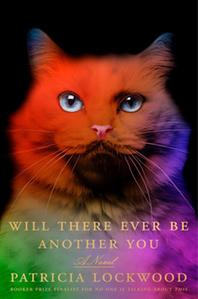
 In Patricia Lockwood's head-spinning second novel, Will There Ever Be Another You, a writer gingerly moves past family tragedies but becomes mired in ill health.
In Patricia Lockwood's head-spinning second novel, Will There Ever Be Another You, a writer gingerly moves past family tragedies but becomes mired in ill health.
Lockwood's debut novel, No One Is Talking About This, was on the Booker and Women's Prize shortlists and won the Dylan Thomas Prize. Both books are effectively third-person autofiction; this sequel picks up after the death of the author's niece in infancy from a rare genetic disease. Still raw and reeling, the family heads overseas, hoping a vacation will be restorative. "As soon as she touched down in Scotland, she believed in fairies," the novel opens. This sets the scene for a chronicle of delusion and the unexplained.
The exceptional chapter "The Changeling" documents a clutch of symptoms, as Patricia becomes increasingly alienated from her body. She has had a fever for 48 days; she has trouble controlling her limbs. "I'm concerned about the weakness in your legs," a neurologist says. But this seems more like a mental health crisis. "It was strange to know that when something was really wrong with her, no one would be able to tell." Memories of her brother PJ's suicide attempt suggest an explanation. "I think you became psychotic because of your Family History," someone else offers.
Things keep getting weirder. There is some use of the second person, but the narration mostly shifts into the first person, employing a welter of biblical and literary allusions ("Shakespeare's wife was asking to see me. She wanted to buy my brain, but how to explain that it was no longer worth anything?"). An Anna Karenina-themed tangent feels endless. "I was having a Protagonist Problem: I could not move, or make anything happen" until a trip to Paris for a conference.
Although this doesn't live up to the iconoclastic humor of her poetry (Motherland FatherlandHomelandsexuals) and memoir (Priestdaddy), Lockwood is a queen of one-liners. For instance, in Scotland she remarks on "the lamentable story of Irn-Bru," a Scottish soda with a new recipe. "The taste, a pink electrocution of the tongue, was indescribable--and there was a version that was more so?"
As pictures of disordered minds go, this is striking, but also challenging to slog through. It's difficult to find concrete details to latch onto, at least between the bookends of the trips. It's not, perhaps, how newcomers should encounter Lockwood's genius, but still essential for her fans. --Rebecca Foster, freelance reviewer, proofreader, and blogger at Bookish Beck
Shelf Talker: Patricia Lockwood's curious second novel, an autobiographical sequel to No One Is Talking About This, depicts a writer experiencing a mysterious illness and simultaneous mental breakdown.

